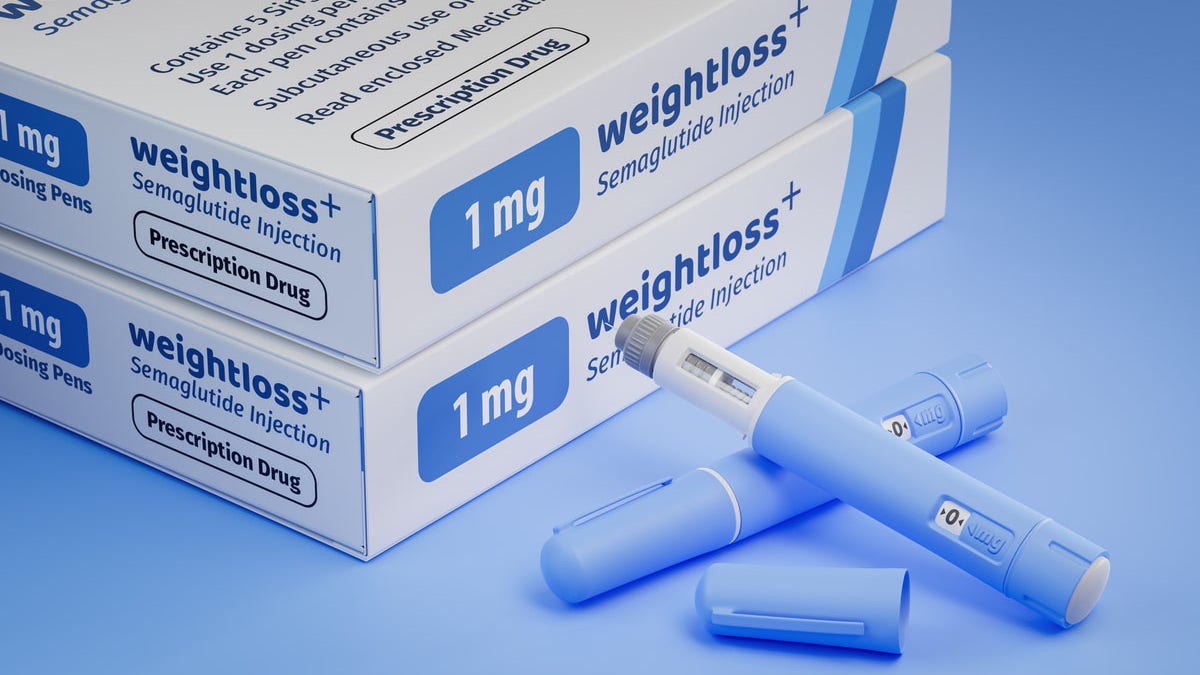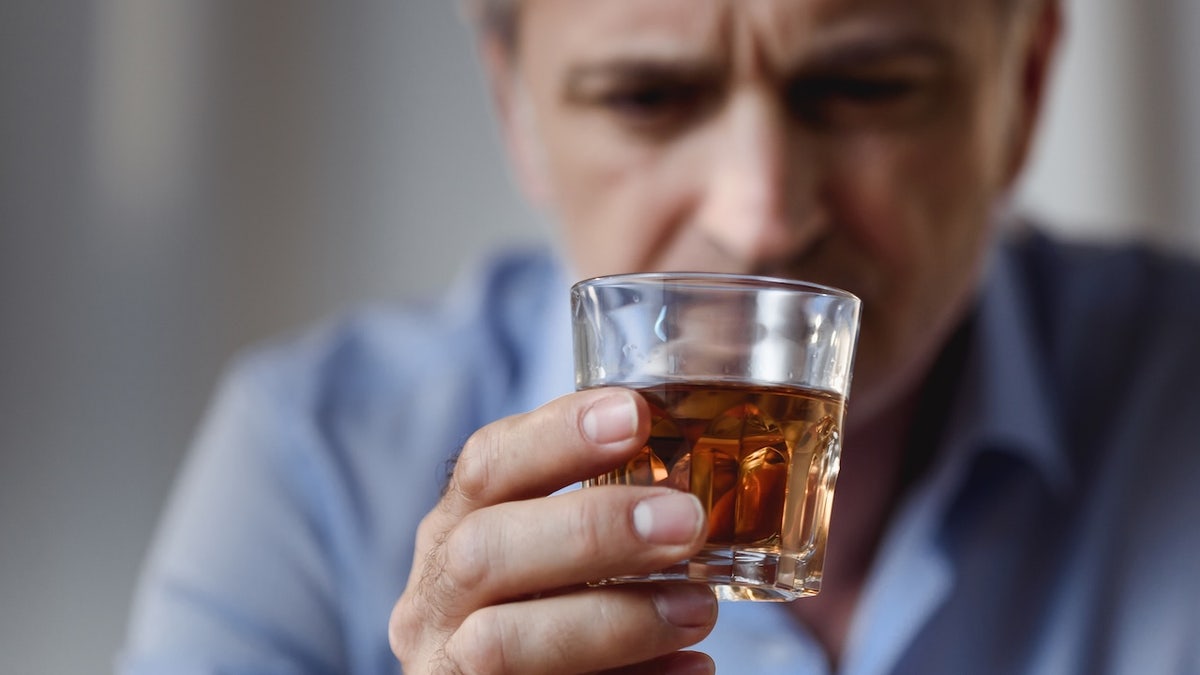Weight-loss medications known as glucagon-like peptide-1 (GLP-1) agonists, which have gained popularity for treating type 2 diabetes and obesity, have been shown to have the surprising secondary benefit of reducing alcohol intake.
A team of international researchers from Ireland and Saudi Arabia followed 262 adult patients with obesity who started taking two GLP-1 medications: liraglutide or semaglutide.
Among the regular drinkers, weekly alcohol intake decreased by 68%, from approximately 23 units of alcohol to around 8 units.
WEIGHT LOSS, DIABETES DRUGS CAN CAUSE MOOD CHANGES: WHAT TO KNOW ABOUT BEHAVIORAL SIDE EFFECTS
The findings were recently published in the journal Diabetes, Obesity and Metabolism and were also presented last week at the European Congress on Obesity in Spain.
GLP-1 agonists mimic a hormone called GLP-1, which is released from the gastrointestinal system after eating, according to study co-author Carel Le Roux, a professor at University College Dublin.

Weight-loss medications known as glucagon-like peptide-1 (GLP-1) agonists have been shown to have the surprising secondary benefit of reducing alcohol intake. (iStock)
These medications activate GLP-1 receptors in the brain, decreasing the sense of "reward" people feel after eating or drinking, eventually leading to reduced cravings for both food and alcohol, he told Fox News Digital.
"It is this commonality of function that suggests the GLP-1 receptors in the brain may be a therapeutic target for not just the disease of obesity, but also for alcohol use disorder," the professor said.
Study findings
Before the participants started the weight-loss drugs, they self-reported their weekly alcohol intake, then were categorized as non-drinkers, rare drinkers or regular drinkers.
Approximately 72% had at least two follow-up visits and 68% reported regular alcohol consumption.
WEIGHT-LOSS DRUGS’ IMPACT ON CANCER RISK REVEALED IN NEW STUDY
After starting the weight-loss medications, the participants’ weekly average alcohol intake decreased by almost two-thirds overall — from approximately 11 units of alcohol to four units after four months of treatment with the GLP-1 agonists.
The reduction in alcohol use was comparable to the decrease that can be achieved by nalmefene, a drug that decreases the "buzz" feeling in people with alcohol use disorder in Europe, according to the researchers.

Among the regular drinkers, weekly alcohol intake decreased by 68%, from approximately 23 units of alcohol to around 8 units. (iStock)
For the 188 patients who were followed over an average of four months, none had increased their alcohol intake after starting the weight-loss medications.
Patients reported that after an evening meal, they were too full to have their usual drink — and when they did drink, they reported becoming full extremely quickly and drinking at a slower pace, Le Roux noted.
"The findings in this study suggest that we may have just found a therapeutic target for alcohol use disorder."
This suggests that the experience was less enjoyable, partly due to the reduced rate of alcohol absorption.
Some patients also reported that they didn’t enjoy the flavor of the alcoholic beverages as much, and also that hangovers were much worse.
All of these experiences showed that the weight-loss medications create "guard rails" that prevent most patients from drinking excessively, giving them a degree of control over their alcohol intake, according to Le Roux.

After starting the weight-loss medications, the participants’ weekly average alcohol intake decreased by almost two-thirds overall. (iStock)
"The findings in this study suggest that we may have just found a therapeutic target for alcohol use disorder — the GLP-1 receptor," the professor told Fox News Digital.
"This finding potentially opens the possibility of an entirely new pharmacological treatment paradigm, which could be used in conjunction with conventional methods, such as behavior therapy and group support."
Potential limitations
The study was limited by its relatively small number of patients, the researchers acknowledged.
Also, the researchers were not able to verify the participants’ self-reported alcohol intake, and roughly one-third of them were not available for follow-up.
SEMAGLUTIDE FOUND TO HAVE SHOCKING BENEFIT FOR LIVER DISEASE PATIENTS IN NEW STUDY
There was also no control group, which means the researchers couldn’t prove that taking weight-loss medication reduces alcohol intake.

The main advantage of GLP-1 agonists is that they only need to be taken once a week and continue to work for the entire week. (iStock)
"Randomized, controlled trials with diverse patient populations — including patients diagnosed with alcohol use disorder — are needed to provide the quality and quantity of data that could be used to support an application for licensing the medication for the treatment of alcohol use disorder," Le Roux said.
(One such trial is currently underway in Denmark.)
Study implications
With the current medications available to treat alcohol use disorder, the "major problem" is compliance, Le Roux said — "because the cravings for alcohol tend to come in waves."
CLICK HERE TO GET THE FOX NEWS APP
"This means a patient might be fully committed to treatment at one point in the week, but then stop taking the medication later in the week when a craving comes," the professor added.

"This research suggests a promising ancillary benefit of GLP-1 analogs, potentially influencing cravings for alcohol and offering a new avenue for managing alcohol use disorder," a physician said. (iStock)
There are currently three FDA-approved medications to treat alcohol use disorder: naltrexone (which helps decrease cravings by reducing the "buzz" feeling that comes with drinking alcohol); disulfiram (which helps some people avoid alcohol by making them feel sick when they drink), and acamprosate (which restores the balance of hormones in the brain to reduce cravings), according to the National Institute on Alcohol Abuse and Alcoholism.
CLICK HERE TO SIGN UP FOR OUR HEALTH NEWSLETTER
But less than 10% of people with alcohol use disorder get the proper treatment, with many resuming use within the first year of treatment, past research shows.
The main advantage of the GLP-1 agonists is that they only need to be taken once a week and continue to work for the entire week.

For the 188 patients who were followed over an average of four months, none had increased their alcohol intake after starting the weight-loss medications. (iStock)
Outside experts say the study’s findings highlight the potential of weight-loss medications to help treat alcohol use disorder.
"This research suggests a promising ancillary benefit of GLP-1 analogs, potentially influencing cravings for alcohol and offering a new avenue for managing alcohol use disorder," Dr. Fatima Cody Stanford, obesity medicine physician at Massachusetts General Hospital and Harvard Medical School, who was not part of the study, told Fox News Digital.
For more Health articles, visit www.foxnews.com/health
"While the exact mechanisms are still being explored, the findings contribute to our understanding of the broader benefits of GLP-1 analogs beyond obesity treatment," Stanford added.
.png)
 German (DE)
German (DE)  English (US)
English (US)  Spanish (ES)
Spanish (ES)  French (FR)
French (FR)  Hindi (IN)
Hindi (IN)  Italian (IT)
Italian (IT)  Russian (RU)
Russian (RU)  7 hours ago
2
7 hours ago
2








Comments